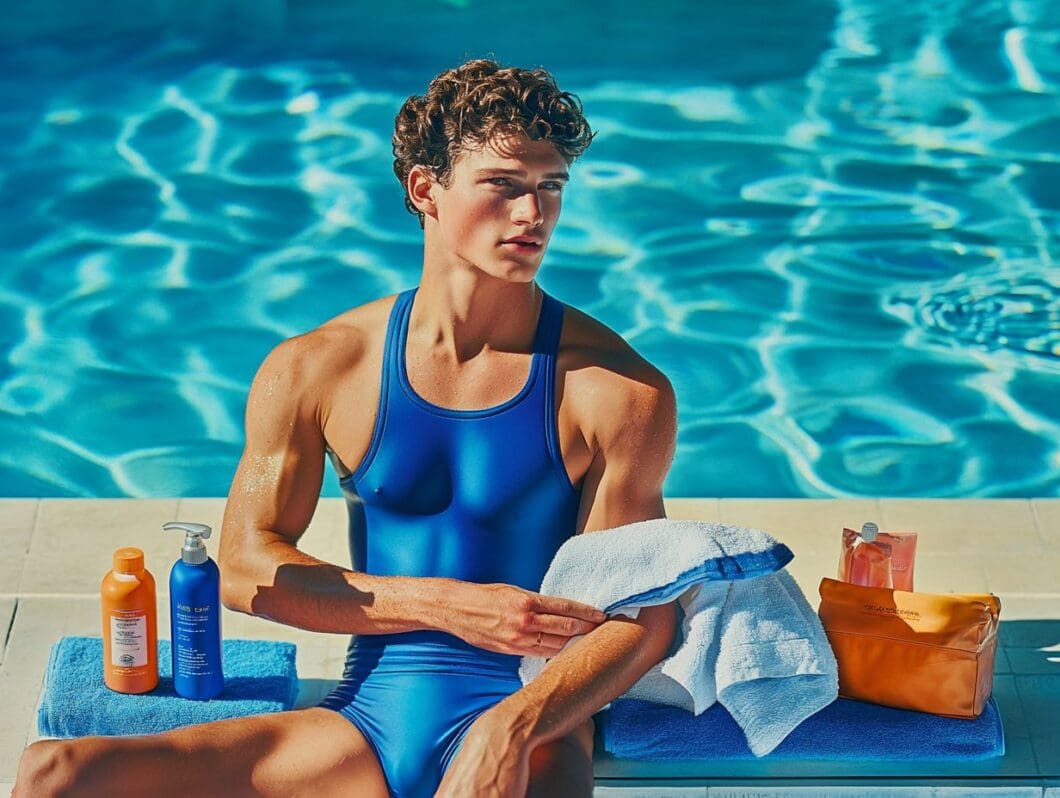Swimming can be a refreshing escape, but the impact of chlorine and salt water on your hair can be tough to handle.
Whether you’re a competitive swimmer or a weekend enthusiast, understanding how to protect and nourish your locks is essential.
This article explores vital hair care strategies tailored for swimmers, including:
- Pre-swim protection
- Effective post-swim routines
- Personalized care for different hair types
Plus, discover DIY remedies to restore that healthy shine.
Dive in to learn how to keep your hair in top shape, no matter how often you hit the water!
Key Takeaways:
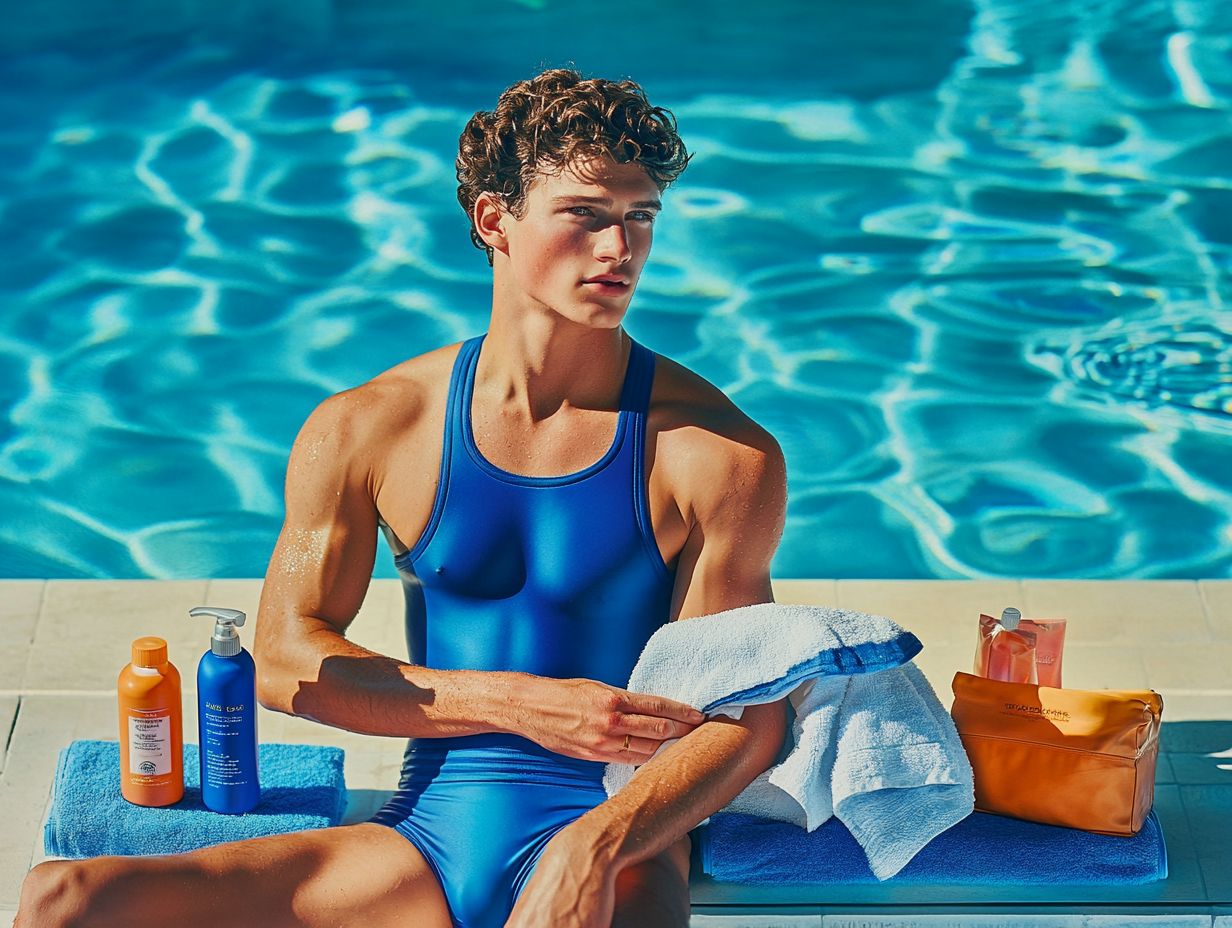
Importance of Hair Care for Swimmers
For swimmers, it is essential to maintain optimal hair health due to the adverse effects of chlorine exposure and the damaging properties of saltwater. Implementing proper hair care routines not only enhances the appearance of swimmers’ hair but also protects it from the potential damage associated with regular swimming activities.
Understanding effective methods to shield hair from chlorine and saltwater can lead to improved moisture retention and overall hair vitality. This approach ensures that swimmers can enjoy their time in the pool while preserving the beauty of their hair.
Effects of Chlorine and Salt Water on Hair
Chlorine and saltwater can have adverse effects on hair, leading to dryness, brittleness, and discoloration, commonly referred to as “swimmer’s hair.” The harsh chemicals present in swimming pools strip away natural oils, resulting in weakened strands that are more susceptible to damage.
This issue is particularly pronounced for individuals with fine or curly hair textures, as these types tend to absorb moisture more readily and may lose their natural shine more quickly. Saltwater can further exacerbate this concern by drawing out essential oils, leading to increased dehydration and frizz, which ultimately diminishes the overall health of the hair. Both chlorine and saltwater can contribute to structural damage over time, weakening the hair shaft and increasing the likelihood of split ends.
To mitigate these effects, it is essential for individuals to implement protective measures, such as wearing swim caps and applying leave-in conditioners prior to swimming. These practices help ensure that hair remains hydrated and retains its vibrant appearance.
Pre-Swim Hair Protection
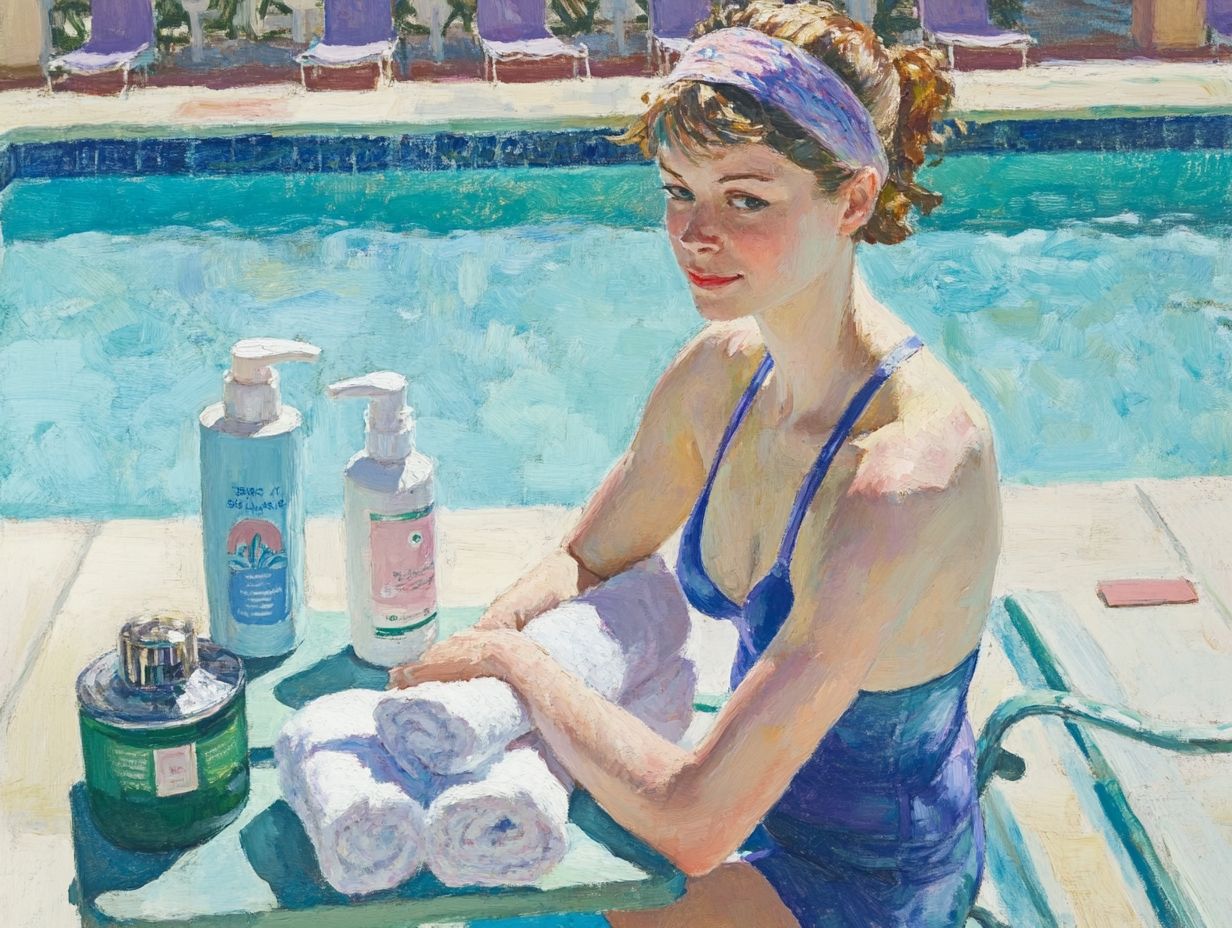
Effective pre-swim hair protection is essential for swimmers to mitigate the harmful effects of chlorine and saltwater. By implementing proactive measures, such as applying protective products, wearing a swim cap, and utilizing natural oils, swimmers can significantly reduce hair damage and preserve the integrity of their hair during swimming sessions.
Applying Protective Products
Applying protective products prior to swimming can significantly safeguard hair from chlorine damage and saltwater exposure. The use of natural oils, such as coconut oil and olive oil, not only establishes a barrier against harsh chemicals but also nourishes and hydrates the hair, thereby enhancing its resilience.
Plus these oils, swimmers may benefit from utilizing leave-in conditioners specifically designed to detangle and protect hair from environmental aggressors. These products generally contain proteins and moisturizing agents that strengthen the hair’s structure while imparting a healthy shine. To maximize their protective benefits, it is advisable to apply these products generously to damp hair, ensuring thorough coverage from the roots to the tips.
For optimal effectiveness, allowing a brief soaking period before swimming can further enhance the barrier against damaging elements. Furthermore, incorporating moisturizing sprays can assist in replenishing lost hydration after swimming, resulting in hair that feels softer and healthier.
Post-Swim Hair Care
A comprehensive post-swim hair care routine is essential for restoring hair health following exposure to chlorine and saltwater. It is advisable to rinse the hair immediately after swimming, then utilize a clarifying shampoo and a deep conditioner to effectively remove chemical residues and replenish moisture.
Rinsing and Cleansing Techniques
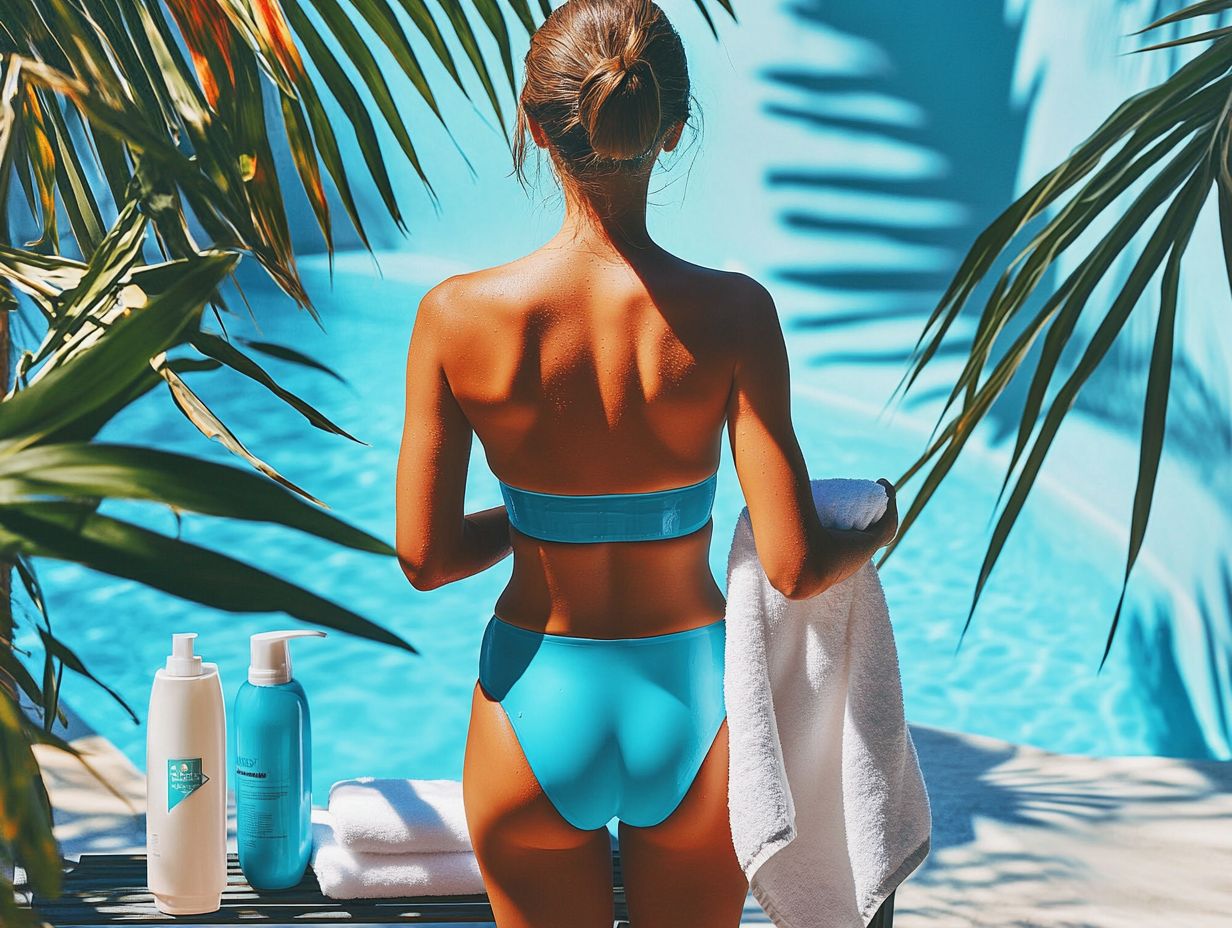
Rinsing hair thoroughly immediately after swimming is crucial for minimizing damage caused by chlorine and saltwater. Utilizing a gentle shampoo for daily cleansing, or a clarifying shampoo for more intensive cleansing, can effectively remove harmful residues and maintain the hair’s vibrancy.
The process commences with a comprehensive rinse, which significantly mitigates the adverse effects of chemicals present in both pools and ocean water. Gentle shampoos, specifically designed for regular use, offer a mild yet effective cleansing option that does not strip away natural oils. Conversely, clarifying shampoos are utilized when deeper cleansing is required; these products are formulated to address stubborn build-up from chlorine, salt, and other environmental pollutants.
By understanding the distinct functions of both types of shampoos, swimmers can better protect their hair, ensuring it remains healthy, shiny, and resilient against potential damage.
Moisturizing and Nourishing Hair
Moisturizing and nourishing hair after swimming is essential for restoring its natural health and vitality. Many swimmers encounter the challenge of preserving their hair’s integrity due to the damaging effects of chlorine and saltwater.
To address this issue, it is imperative to select high-quality hair care products. Deep conditioners and rich hair masks, particularly those infused with ingredients such as coconut oil and shea butter, can significantly replenish lost moisture. Additionally, natural oils such as jojoba and almond oil not only provide an extra layer of hydration but also enhance shine and softness.
These solutions effectively protect and strengthen hair, ensuring it remains healthy, hydrated, and resilient following each swim.
Special Considerations for Different Hair Types
Different hair types necessitate customized hair care strategies, particularly for swimmers who are exposed to chlorine damage. Recognizing the distinct requirements of curly, straight, and color-treated hair is essential for selecting appropriate products and techniques that prioritize hair health and protection.
Tips for Curly, Straight, and Color-Treated Hair
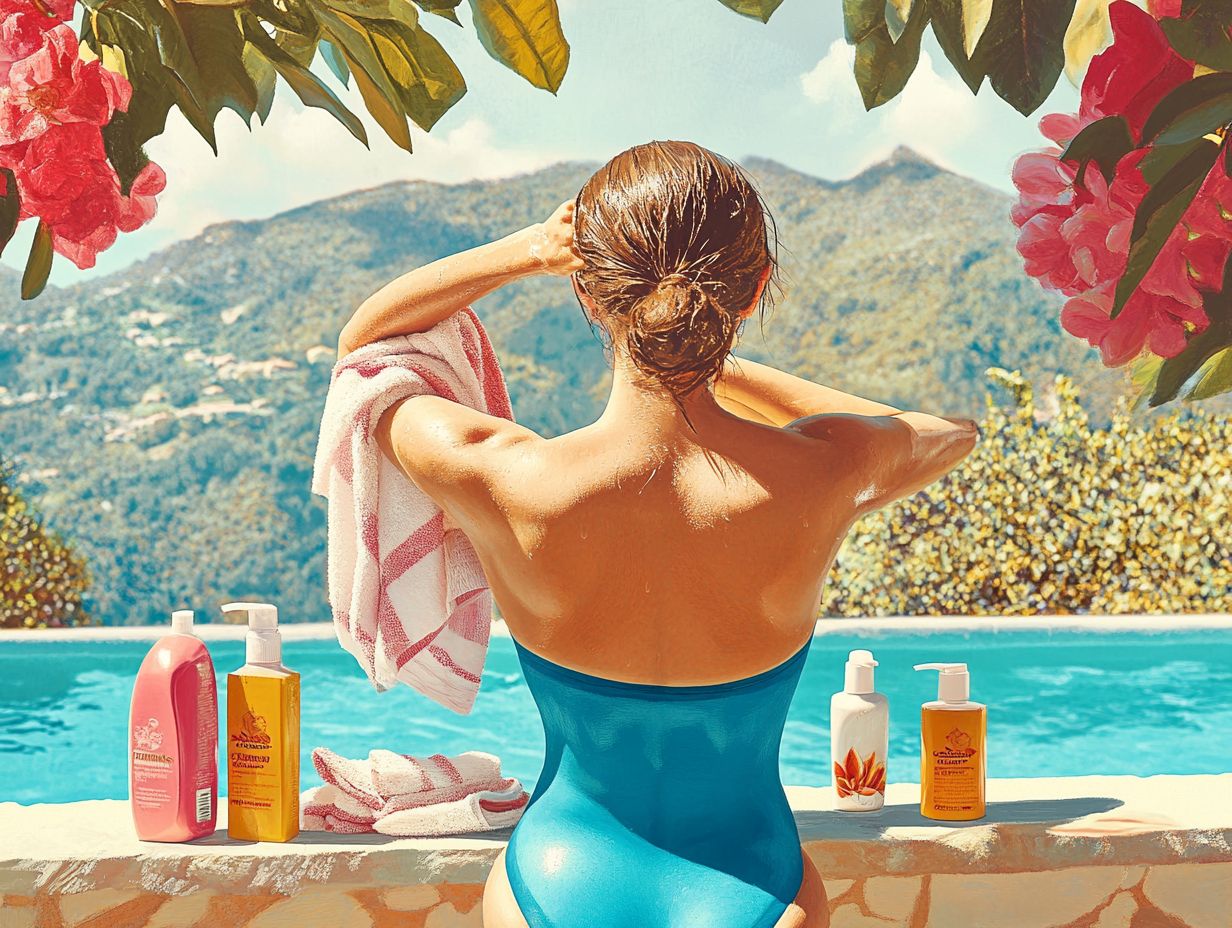
Swimmers with curly, straight, or color-treated hair have distinct needs regarding hair care routines, particularly in addressing chlorine damage. For individuals with curly hair, the application of coconut oil can enhance moisture retention, while those with straight hair may find lightweight leave-in conditioners beneficial in preventing the hair from becoming weighed down.
Color-treated hair necessitates special attention to maintain vibrancy and prevent fading. Utilizing a deep conditioning treatment rich in proteins can aid in restoring elasticity, while products containing UV filters can provide protection against sun exposure.
Swimmers should also consider incorporating a clarifying shampoo periodically to remove chlorine build-up, followed by a hydrating mask to replenish moisture.
By tailoring their hair care approach according to hair type, individuals can significantly enhance hair strength and appearance, ensuring that each strand remains healthy and vibrant after every swim.
DIY Hair Treatments for Swimmers
DIY hair treatments can serve as an effective and cost-efficient method for swimmers to restore and maintain hair health affected by chlorine damage.
The application of natural remedies, such as coconut oil and olive oil, offers essential nourishment and hydration, contributing to the vibrancy and resilience of the hair.
Natural Remedies for Damaged Hair
Natural remedies can play a significant role in repairing hair damage resulting from swimming, providing a gentle and effective approach to restoring vitality. Ingredients such as apple cider vinegar can help balance the scalp’s pH, while vitamins A and E nourish the hair, promoting healthier growth.
Coconut oil serves as an exceptional moisturizer, delivering deep hydration that alleviates dryness caused by chlorine exposure. Additionally, a blend of honey and olive oil functions as a nourishing hair mask; honey’s humectant properties draw moisture into the hair, while olive oil contributes shine and smoothness.
For a quick remedy, a rinse made from brewed green tea not only soothes the scalp but also strengthens the hair due to its antioxidant content. By incorporating these natural treatments, swimmers can revitalize their hair while enjoying both the water and the health of their tresses. For more tips, check out this Hair Care Routine for Swimmers.
Creating a Personalized Hair Care Routine
Developing a personalized hair care regimen for swimmers is crucial for effectively addressing the damaging effects of chlorine and saltwater.
Key factors to consider include hair type, frequency of swimming, and the selection of specific products that target individual needs to promote optimal hair health.
Factors to Consider and Tips for Success
When developing a personalized hair care routine, several factors must be considered to enhance the effectiveness of products specifically designed for swimmers’ hair. It is crucial to account for individual hair types, as well as the swimming environment and product compatibility, in order to achieve optimal results.
Understanding whether the hair is straight, wavy, curly, or coily is essential, as each type necessitates specific nourishing and hydrating ingredients. Additionally, the selection of products should reflect considerations such as chlorine levels and sun exposure that swimmers regularly encounter.
Incorporating deep conditioning treatments and UV protectants can significantly improve the health of hair frequently exposed to chlorinated water. Furthermore, utilizing a clarifying shampoo on occasion can assist in removing buildup from styling products and environmental pollutants, thereby enhancing overall hair vitality.
Consistency in hair care is imperative; establishing a dependable routine that includes regular trims and protective styles can lead to healthier and more resilient strands.


